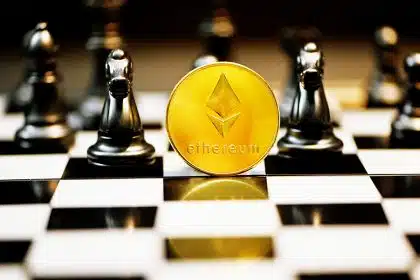While not on a massive scale yet, 2023 saw crypto take more steps into mass adoption.
The past year has been a massive year for cryptocurrencies once again. There have been several highs and huge breakthroughs, as well as a few lows. However, 2023 can be seen as a year in which crypto took another step forward.
Whether you want to trade cryptocurrency, invest, or simply want a new way to buy and use services and products, some of these developments are set to transform the world of crypto in 2023 and beyond.
Ethereum 2.0
Ethereum 2.0 is the next stage of Ethereum that was “finalized” a little while ago. ETH 2.0 wasn’t a singular release but rather a change that has happened over the past few years. One of the biggest changes it has brought is incredible transaction speed.
One of the most frustrating problems is the time it takes for transactions and crypto trades to be processed; ETH 2.0 has revolutionized transaction speeds by allowing up to 100,000 transactions a second. While this is only part of the Ethereum evolution, it is set to have a broad effect across many crypto-based systems.
El Salvador
One of the biggest hurdles crypto has faced over the past few years is the lack of mass adoption. While some companies have begun accepting crypto as payment, it hasn’t reached the level of being a recognized currency in a country.
El Salvador took the step to recognize Bitcoin as a legal tender, and while it hasn’t been without hiccups, it shows that adoption at this size is possible. This has been seen as the first step towards adoption globally.
Machankura
Africa has fallen behind the rest of the world in terms of crypto-adoption simply due to the lack of internet access, computers, and smartphones. However, a developer in Africa has created a ground-breaking solution for this problem.
Machankura is an app for non-smartphones that allows users to trade cryptocurrencies, namely Bitcoin. The platform works over text messages and eliminates the need for the internet, as mobile access is the only thing necessary.
Rise of DeFi
DeFi, or decentralized finance, is the combination of traditional financial systems and the blockchain. Using smart contracts and the blockchain, DeFi enables us to send money at lightning speed with no intermediaries.
DeFi also eliminates all the fees associated with banking and instead uses a peer-to-peer system. DeFi uses automated machines, which replace what a bank would do altogether.
NFTs
NFTs have been on a rollercoaster over the past couple of years. Many people view them as a scam or a way for the rich to hide their wealth; while this is true in some cases, NFTs have a lot more versatility than you may think.
NFTs can offer a lot for multiple industries, including gaming. Developers want players to own what they earn in a game. Fortnite is a great example; skins don’t have any real value but turning them into NFTs allows them to be traded and earn their owner’s real money.
Wider Adoption
While not on a massive scale yet, 2023 saw crypto take more steps into mass adoption. Businesses across the globe are allowing customers to use cryptocurrency to buy goods or services they provide.
Regulation is also part of the adoption process. With crypto regulations becoming more and more talked about and common, mass adoption has quickly become a question of “when” and not “if.”
Company Tokens
Many companies and institutions have viewed coins like Bitcoin and Ethereum as being too unstable and unreliable in a way. Therefore, they have taken the step to create their own tokens instead of adapting existing ones.
This allows them to have more control over the value of said coins while still being part of the cryptocurrency blockchain ecosystem and allowing their customers to use crypto to buy products.
Greater Protection
After the recent FTX disaster, consumer protection has become a hot topic again. Part of regulating crypto will ensure crypto traders are better protected when buying and selling on platforms.
Please check out latest news, expert comments and industry insights from Coinspeaker’s contributors.



